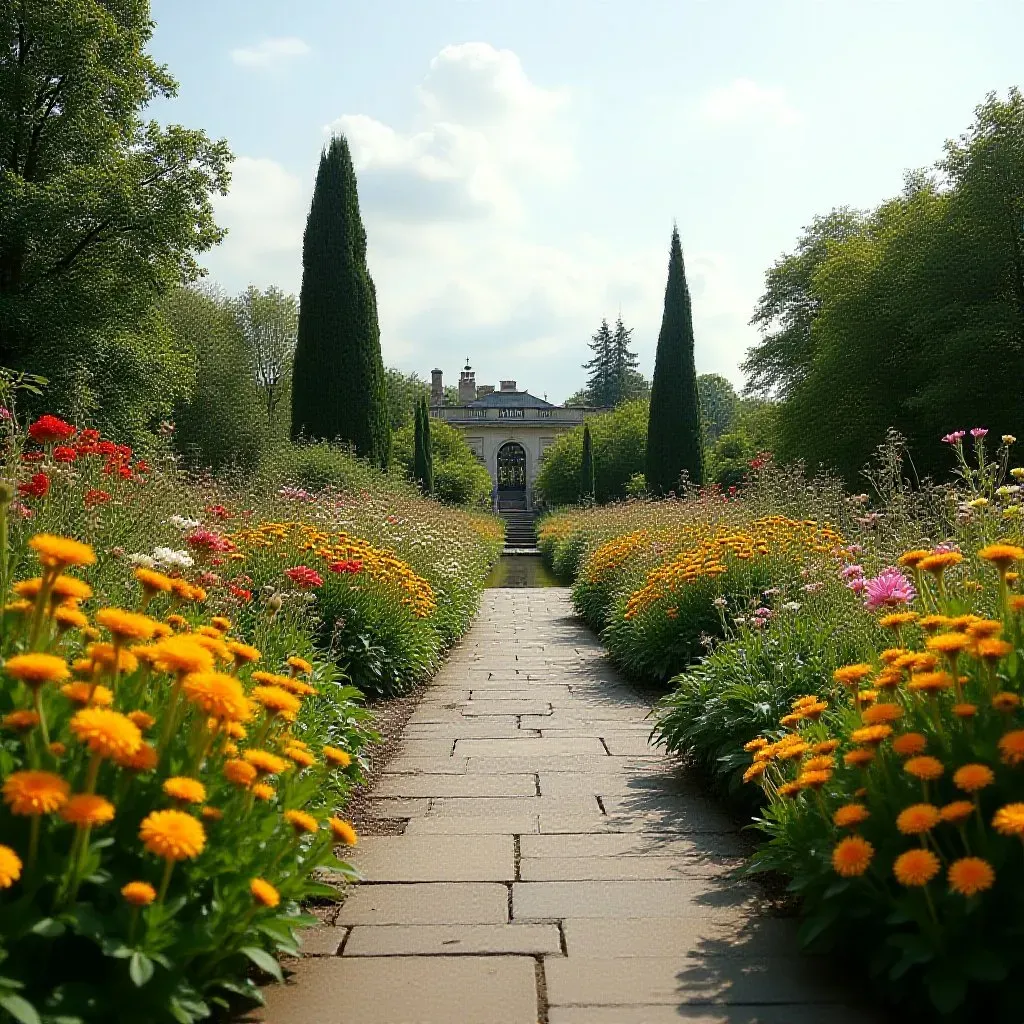Table of Contents
Jardin Potager de Bonnétable is a French kitchen garden started in the early 2000s.
It focuses on heirloom varieties, organic methods, and sustainable practices.
The garden offers educational programs, workshops, and seasonal events.
Visitors can explore themed sections, learn permaculture, and enjoy local produce.
Located near Bonnétable, it's open seasonally with easy access and nearby attractions.
Question | Answer |
|---|---|
When did Jardin Potager de Bonnétable start | It began in the early 2000s as part of France's kitchen garden revival |
What sustainable practices does the garden use | It uses composting, rainwater harvesting, natural pest control, and crop rotation |
What educational programs are available | Workshops include organic gardening, permaculture design, seed saving, and cooking classes |
When is the garden open to visitors | It's open Tuesday-Sunday from April to October and weekends from November to March |
What are some nearby attractions | Nearby sites include Château de Bonnétable, Forêt de Bercé, and local markets |
History and development of Jardin Potager de Bonnétable
The Jardin Potager de Bonnétable started in the early 2000s as part of France's kitchen garden revival movement.
It was inspired by historic French potagers like Villandry and Château de la Bourdaisière.
The garden focuses on preserving heirloom varieties and teaching organic gardening methods.
Key development phases
Period | Development |
|---|---|
Early 2000s | Initial establishment as traditional potager |
Mid-2000s | Expansion with thematic sections |
2010s | Integration of permaculture principles |
2020s | Modern sustainable innovations |
Major influences
- 18th-century French aristocratic kitchen gardens
- Permaculture design by Bill Mollison and David Holmgren
- Agroecology and closed-loop systems
- Medieval monastic gardening techniques
The garden has evolved from a simple vegetable plot to a comprehensive educational space.
It now includes medicinal plants, aromatic herbs, and rare vegetable varieties.
Modern influences focus on sustainable practices and community engagement.
Key features and sustainable gardening practices
The Jardin Potager de Bonnétable showcases innovative gardening techniques and eco-friendly practices.
Garden layout and design
Symmetrical beds with gravel paths create easy access for maintenance and visitors.
Raised beds improve drainage and soil quality, borrowing from medieval monastic gardens.
Companion planting is widely used throughout the garden.
Plant collections
- Heirloom vegetables: Rare tomatoes, beans, squash, and lettuce varieties
- Aromatic herbs: Basil, thyme, rosemary, and lavender
- Edible flowers: Nasturtiums, violets, and borage
- Fruit trees and berries: Apple, pear, and currant bushes
Sustainable practices
Practice | Description |
|---|---|
Composting | All organic waste composted on-site to enrich soil |
Rainwater harvesting | Collection tanks reduce municipal water reliance |
Natural pest control | Ladybugs, lacewings, and birds manage pests |
Crop rotation | Prevents soil depletion and reduces disease risks |
The garden demonstrates how traditional methods combine with modern sustainability.
Every element works together to create a self-sufficient ecosystem.
Educational programs and community workshops
The Jardin Potager de Bonnétable offers year-round educational opportunities for all skill levels.
Workshops and classes
- Organic Gardening Basics: Soil health and planting techniques for beginners
- Permaculture Design: Companion planting, water management, and ecosystem resilience
- Seed Saving: Collecting and storing seeds from heirloom plants
- Cooking with Garden Produce: Farm-to-table cooking using fresh ingredients
School and group programs
Educational tours focus on biodiversity, food chains, and sustainable agriculture for school groups.
Community gardening days allow locals to participate in planting, harvesting, and maintenance activities.
Seasonal events
Event | Season | Activities |
|---|---|---|
Spring Plant Sale | Spring | Organic seedlings and rare plant varieties |
Harvest Festival | Autumn | Tastings, demonstrations, children's activities |
Winter Pruning Workshops | Winter | Fruit tree and shrub pruning techniques |
Programs are available in both French and English to accommodate international visitors.
Private tours can be arranged for special interest groups and organizations.
Visitor information and planning your visit
Planning your trip to Jardin Potager de Bonnétable is straightforward with this essential information.
Opening hours and admission
Season | Days | Hours | Admission |
|---|---|---|---|
April-October | Tuesday-Sunday | 10 AM - 6 PM | Adults €6, Children €3 |
November-March | Saturday-Sunday | 10 AM - 4 PM | Under 6 free, Group discounts |
Getting there
- By car: Take D309 north from Le Mans (25-minute drive)
- Public transport: Bus Line 21 from Le Mans to Bonnétable
- Parking: Free on-site parking available
- Accessibility: Wheelchair-friendly paths and restrooms
Facilities and amenities
Gift shop sells organic seeds, gardening books, and local products
Café offers light meals and refreshments made with garden ingredients
Picnic area available for visitors bringing their own food
Best time to visit
Late spring to early autumn (May-September) for peak blooms and harvests
Wear comfortable walking shoes and sun protection
Photography allowed throughout the garden
Nearby attractions in Bonnétable and Sarthe region
Bonnétable and the Sarthe region offer diverse attractions to complement your garden visit.
Historical sites
- Château de Bonnétable: 15th-century castle with guided tours
- Église Saint-Martin: Gothic-Renaissance church with historic stained glass
- Local architecture: Traditional French buildings throughout the commune
Natural attractions
Attraction | Distance | Activities |
|---|---|---|
Forêt de Bercé | 20 km | Hiking, wildlife spotting, nature walks |
Regional parks | Various | Picnicking, cycling, outdoor recreation |
Countryside trails | Throughout area | Walking, photography, nature observation |
Local experiences
Wednesday and Saturday markets featuring regional produce and artisanal goods
Traditional French restaurants and cafes serving local cuisine
Artisan workshops and craft demonstrations in nearby villages
Regional highlights
- Le Mans: Historic city with racing heritage (20 km south)
- Vineyards and wine tasting in surrounding countryside
- Traditional farming communities showcasing rural French life
